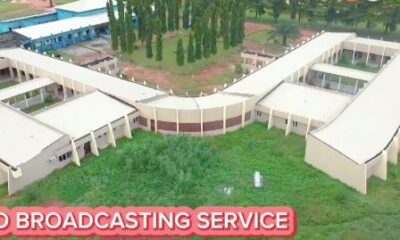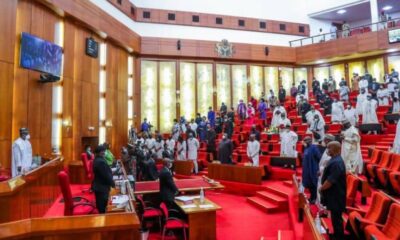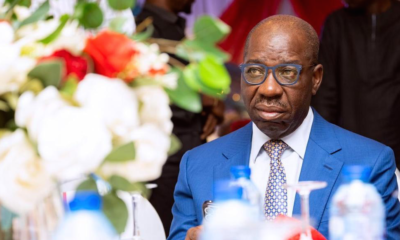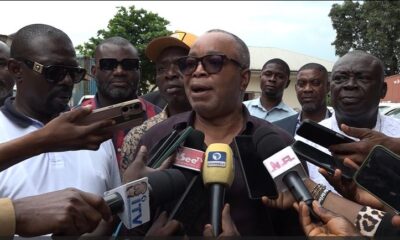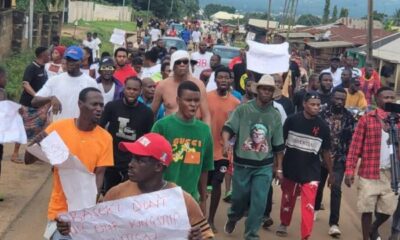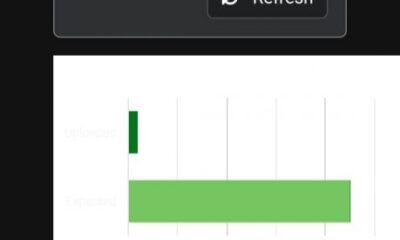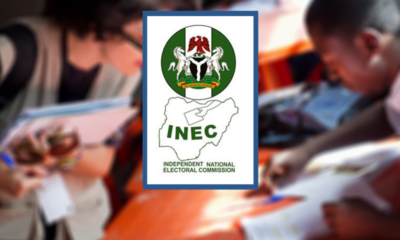Politics
Edo State Gubernatorial Election 2024: A historical overview

Edo State, located in Nigeria’s southern area, has a rich election history that represents both the successes and challenges of the country’s democratic transition. As the state prepares for the September 21, 2024, gubernatorial election, it is critical to examine the growth of its electoral landscape and the watershed moments that have moulded its political dynamics.
Historical Context: The Beginning of Democracy in Edo.
The return to democracy in 1999 signalled a new era for Edo State. Lucky Igbinedion of the People’s Democratic Party (PDP) became the first governor in this democratic era. His administration laid the framework for future political struggles, paving the way for the fierce conflicts that would ensue.
2007 Election: Tumultuous
In 2007, the governor elections became notable due to extensive rigging and violence. Oserheimen Osunbor, also of the PDP, was initially pronounced the winner, but Adams Oshiomhole of the Action Congress (AC) fiercely protested the results. Following several legal fights, Oshiomhole took power in 2008, ushering in a time of major political realignment and reform.
2008–2016 Election: Oshiomhole
Oshiomhole’s governorship was marked by significant infrastructural development and public welfare initiatives, which earned him widespread acclaim. His 2012 re-election under the Action Congress of Nigeria (ACN) demonstrated the electorate’s support for his leadership, despite persistent problems with local government officials. His administration did, however, suffer criticism, particularly for how it handled municipal elections and popular dissent.
2016 Election: A New Challenge.
The 2016 Edo gubernatorial elections were a watershed moment, illustrating the state’s changing political scene. Godwin Obaseki of the APC competed against Osagie Ize-Iyamu of the PDP in a heated debate. This election was noted for its high voter turnout and creative use of technology to improve the voting process. However, the aftermath sparked worries about electoral integrity, as accusations of violence and coercion tainted the results.
2020 Election: A Test of Resolution
The 2020 elections were especially important because of the political turmoil that followed the previous elections. Obaseki, who had split with the APC and was running for reelection as a PDP candidate, faced a stiff fight from Ize-Iyamu. The campaigns were heated, with an emphasis on governance, development, and allegations of corruption. Despite the problems created by the COVID-19 pandemic, the elections saw significant voter turnout, ultimately leading to Obaseki’s re-election amidst allegations of misconduct.
The aftermath: Calls for reform.
Following the 2020 elections, there were increased calls for electoral changes to improve openness and accountability. The controversies surrounding the electoral process underlined the necessity for ongoing improvement within the Independent National Electoral Commission (INEC) as well as more civic engagement to ensure free and fair elections.
Looking Ahead: 2024 Elections
As Edo State prepares for its elections on September 21, 2024, the political scene is fraught with anticipation and uncertainty. Voters are well aware of the lessons from previous elections, and significant concerns are influencing the conversation.
Notable Candidates in Edo State 2024 gubernatorial elections
This upcoming election features a diverse array of candidates, each bringing unique experiences to the table:
Iyere Kennedy (Accord): A fintech and human rights entrepreneur.
Tom Iseghohi (Action Alliance): A former Transcorp general manager.
Udoh Oberaifo (AAC): A business consultant.
Osarenren Izedonmwen (ADC): An engineer aiming to bring technical expertise to governance.
Kingson Akhimie (ADP) and Senator Monday Okpebholo (APC): Both candidates with political backgrounds looking to make an impact.
Osifo Isaiah (APGA) and Ugiagbe Sylvester (APM): Additional candidates offering varied perspectives.
Areloegbe Amos Osalumese (APP): An accountant striving for financial transparency in governance.
Olumide Akpata (Labour): The former NBA president advocating for legal reforms.
Azemhe Friday Azena (NNPP): A pastor emphasizing moral leadership.
Asuerinme Ighodalo (PDP): A lawyer focusing on legal reforms.
Key Ndidi Patience (PRP): The only female candidate, a health professional advocating for women’s rights.
Anerua Abdulai Aliu (SDP), Okungbowa Paul Ovbokhan (YPP), and Akhalamhe Amiemenoghena (ZLP): Rounding out a competitive field with varied platforms.
Edo State’s electoral history demonstrates the perseverance and determination of its people. As the state prepares for the elections on September 21, 2024, echoes from previous races serve as reminders of the significance of active engagement in creating the future.
The 2024 Edo gubernatorial election is more than just a struggle for political power; it is an opportunity for Edo State residents to express their desire for an accountable administration that meets their needs.
The broad array of candidates promises a lively political debate, laying the groundwork for an entertaining election season. With the stakes higher than ever, Edo residents are preparing to make their voices heard, ensuring that their collective destiny is prioritized in the approaching elections.



